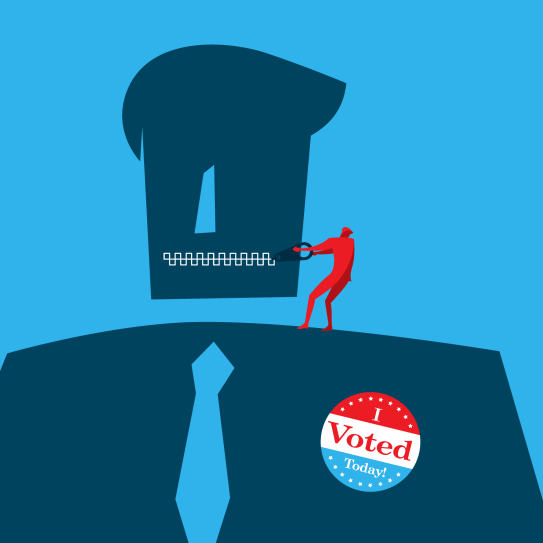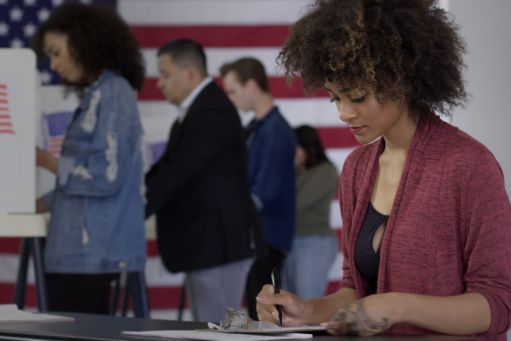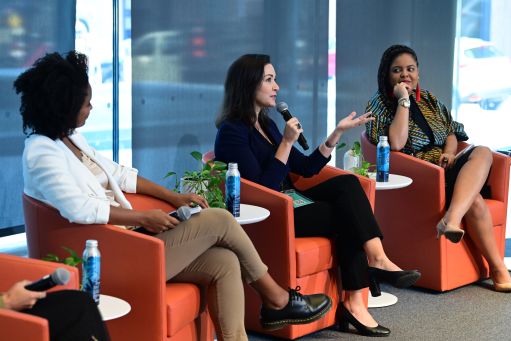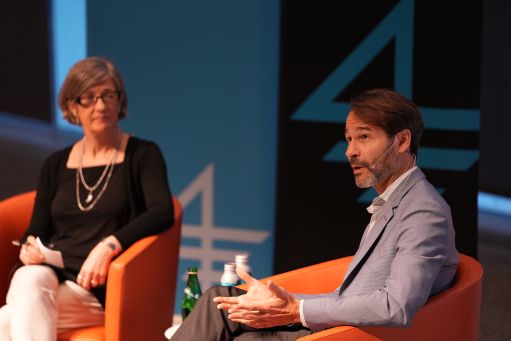Do You Tell People Who You’re Voting For?
Keeping your vote a secret from family and close friends could result in feeling regretful and inauthentic.

With Election Day less than three weeks away, President Trump and former Vice President Joe Biden are trying to sway undecided voters, and many of these voters, as they did in 2016, are keeping their choice secret.
In the aftermath of the election four years ago, Michael Slepian, the Sanford C. Bernstein & Co. Associate Professor of Leadership and Ethics, and a team of researchers recruited a sample of 1,000 voters who kept their ballot decisions to themselves.
What they found surprised them.
“We imagined that we would end up with a sample mostly secretly supporting Hillary Clinton, such as women in red states who didn’t want to tell their husbands they voted for her,” Slepian says. “But the people in our data were overwhelmingly Trump supporters.”
In research published in Motivation Science, Slepian, along with CBS adjunct professor Rachel McDonald, Katharine Greenaway of the University of Melbourne, and Jessica Salerno of Arizona State University, explored the reasons why voters kept their choices secret from those close to them.
For the study, researchers sought voters who told people they voted for one candidate, but actually voted for their opponent.
According to the paper, the three key reasons voters kept the truth about their votes to themselves were reputational concerns, fear of being ostracized by a group, and the desire to preserve a sense of harmony with close friends and loved ones.
Slepian says that keeping a secret creates a profound burden, a feeling that is exacerbated in the realm of politics, where passions often run high.
According to the research, those keeping a secret are not harmed in conversations with people that they are not close to; rather, it is in private moments, often when they are alone, that people experience negative emotions.
“The more people are concerned about their reputations, the more they find themselves ruminating on that secret, and even regretting their decision,” Slepian says. “It seems that having to think about feeling inauthentic is where the problem lies.”
Keeping your political preferences to yourself also affects the quality of conversations that might inform, or even change, your vote.
“If people have honest and frank conversations, that improves their ability to vote the way they want to, or in the way they deem to be in the best interest of others,” Slepian says. “If people are not participating in those talks anymore, and are keeping their vote secret, it reduces dialogue.”
With early voting for the 2020 election already underway, Slepian believes that secret voters will again be relevant, but in a slightly different manner.
“In 2016, Trump was a total outsider who had exhibited some controversial and problematic behavior,” he says. “I think people were concerned about voicing support for him and that was one reason they did not want others to know that they had voted for him.”
But now that Trump is the incumbent, his supporters might be less secretive about casting their vote for him.
“Typically, it would be less controversial to back a sitting president,” Slepian says. “Perhaps, for this reason, some will be more vocal of their support this time around, yet given the latest approval ratings, some backers may again worry about the reputational consequences of their support.”
But what about secret Biden voters?
“Location really matters. Those states that we expect Trump to win, where he is especially popular, I would expect Biden voters in those states to be more secretive about their support,” Slepian said. “This might mean avoiding a conflict with a friend or loved one, but it also means reduced debate and dialogue.”
For more on Professor Slepian’s research on secrets, listen to his interview on Bizcast, CBS’s podcast.
More Features

Can We Curb Fake News? Smart Research May Provide the Answer
Professor Gita Johar shares research insights on why it spreads, spotting who shares it, and a multi-pronged approach to reduce it.

‘We Are Bigger Than Our Problems’
Three takeaways from the 2022 Brazil Climate Summit held at Columbia Business School’s Manhattanville campus

Four Investment Strategies to Combat Climate Change
CBS professor Bruce Usher discusses his book and its most important takeaways for investors.

Climate Week NYC: CBS Experts Weigh In on Smart Incentives, Solutions in the Fight Against Climate Change
As the annual event designed to drive climate action marks its 14th year, here’s what our faculty members had to say about the most pressing issues.
Rise to the challenge.
The COVID-19 pandemic has changed the world of business, while bringing historical inequities and injustice into sharp relief.
Subscribe to Leading Through Change to receive the latest insights from Columbia Business School to help you navigate this unprecedented time.
